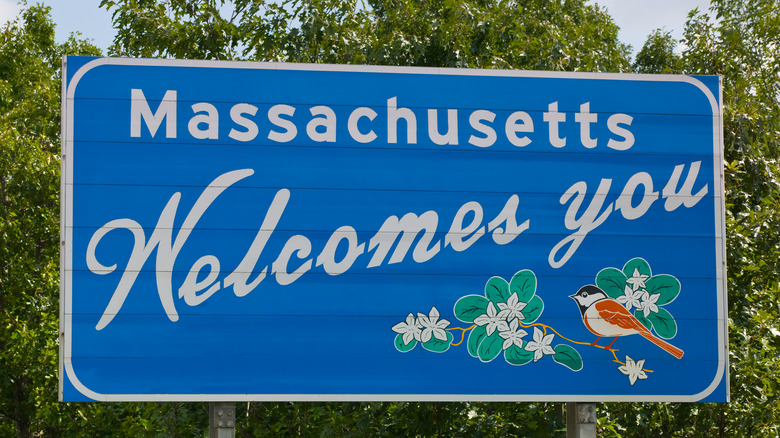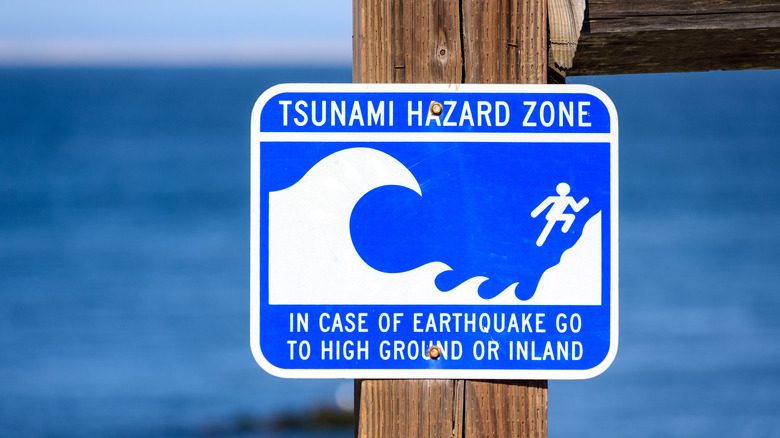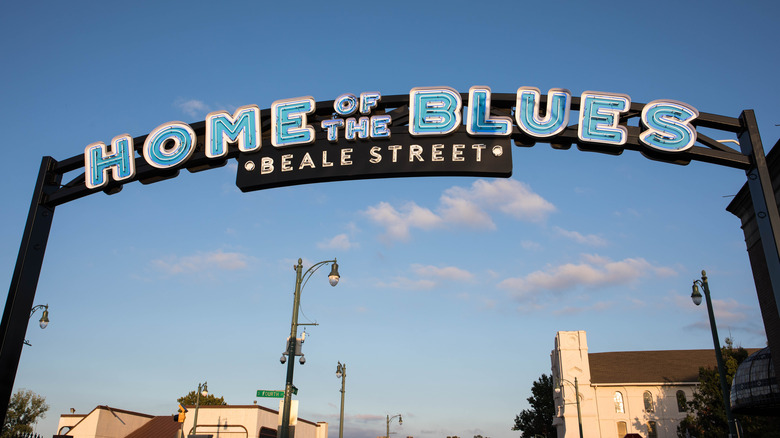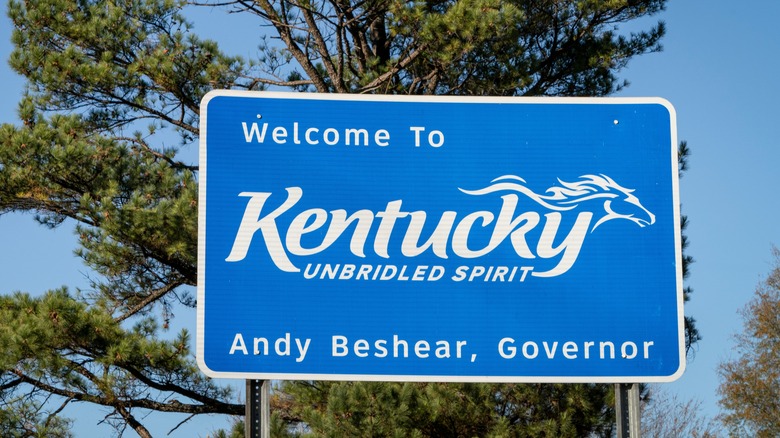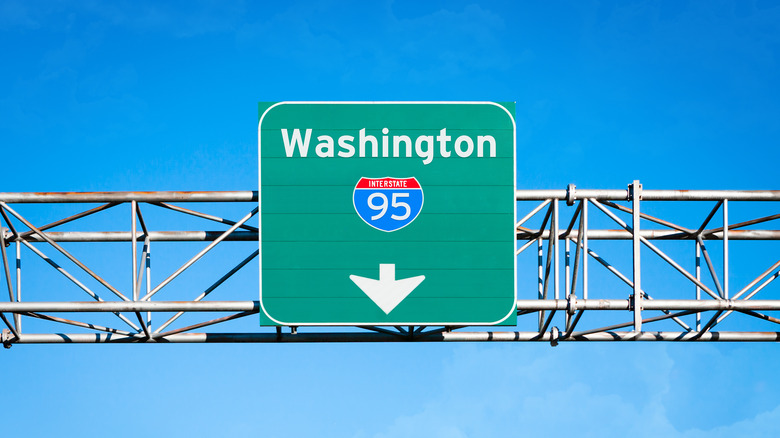10 States No One Should Ever Retire In
It's inevitable that eventually, every American will ask themselves, where are the best and worst places to retire? That question can take on a life of its own when taking factors like affordability, health care, safety, and even seasons into consideration. According to the Pew Charitable Trusts, if you have an annual household income above the poverty line but below $75,000, by 2040 you will very likely fall below the savings threshold for what you'll need to retire comfortably by as much as $7,050 per year. The number of people in this category is expected to rise by 43% in the coming years, representing an increase from 22.8 million to 32.6 million Americans 65 and over. That could explain why a study conducted by the Finra Investor Education Foundation found that 53% of Americans are anxious about their financial situation in general, with 51% of respondents admitting to anxiety over running out of retirement savings. Questions like how tax hikes may affect their retirement are likely top of mind.
Another factor often overlooked is having a community. According to the Centers for Disease Control and Prevention, social isolation impairs health outcomes and can have an impact on your overall health equivalent to smoking or obesity. For instance, the risk of developing dementia rises 50%, while the risk of heart disease and stroke notch up 29% and 32% respectively. Equally important is where you retire, with these being the states you should avoid.
Alaska
With retirement savings ranking so high on the list of concerns for Americans, finding ways to avoid paying additional taxes makes sense. While Alaska is a state with one of the lowest tax burdens in the nation, you may want to think twice about retiring there. Even with lower taxes, the Missouri Economic Research and Information Center notes it's the sixth most expensive state to live in, with a cost of living index of 125.2 — 25.2 points higher than the national average. The remoteness of the state impacts utility costs, groceries, transportation, and health care, raising expenses anywhere from 25.2 points to 57.9 points above the national average. It also makes broadband internet connectivity expensive since the rugged terrain makes fibre optic installation complicated. This has led to a major digital divide in the state, where 60,000 Alaskans go without internet and 200,000 have slow and unreliable service.
The Population Reference Bureau puts the average number of retirement-age individuals in Alaska at 13.1% of the populace, or 96,000 seniors to a total population of 731,000 Alaskans. That gives the state the second lowest percentage of retirement-age individuals in America, so finding a community of retirees for health and happiness might be more difficult than in states like Florida. You won't feel as warm as you would in other states either. Temperatures in Alaska can reach -30 degrees Fahrenheit in winter, with highs of 70 degrees Fahrenheit in summer.
New York
If you've ever wondered about paying taxes on Social Security income at the state level, in New York, you don't. Further, New York state pensions are tax-exempt, while New Yorkers with an IRA or 401(k) receive a tax exemption on the first $20,000 of their retirement income annually if 59 ½ years of age or older. That being said, New York is among the states with the highest tax burden. A $6,303 median property tax makes this one of the most expensive states to live in, which according to property data aggregator CoreLogic, is 2.23 times the 2023 national average for all properties, $2,826.
According to the Missouri Economic Research and Information Center, at 103.2 compared to the median of 100 index points, groceries are surprisingly not the most expensive items in relation to the rest of the U.S. The same goes for utilities, health care, and transportation, which both sit between 103 to 106.4 index points. However, the state absolutely gets you on housing with an index rating almost double the median at 176 index points. According to the NYPD, crime as of February 2024 was actually down in every category. However, there were 8,919 crimes ranging from murder to grand larceny reported in a single month in 2024. The NYPD CompStat 2.0 reports Although crime in April 2024 was down 4.9% from a year ago, violent crimes, felony assaults, and robberies continue to rise.
Massachusetts
Massachusetts is a state to stay away from if you're concerned about heavy taxation of your retirement income. Massachusetts doesn't just tax a majority of private pensions, but the state also goes after 401(k)s and even any capital gains from investments — the state taxes as much as 5% in the long term and 12% in the short term. If you've opened an IRA account, you may not enjoy paying taxes on withdrawals from your IRA, either.
The average monthly property tax in Massachusetts is $5,584. Research from CoreLogic suggests that is double the median average across the U.S. of $2,826, or a difference of $2,758. This tracks with Missouri Economic Research and Information Center data which places Massachusetts' housing index at 218.5, more than twice the national average. Health care, utilities, and transportation are more expensive than in New York, which makes this among one of the most expensive states to live in. You would need between $1.6 million to $1.9 million to retire comfortably in the state for 25 to 30 years. However, as of 2023, the state began levying a 4% wealth tax on income over $1 million, which is in addition to other taxes already mentioned.
Hawaii
While it's a great vacation spot, Hawaii falls under the category of places that are nice to visit but expensive to move to. Where retirement income is concerned, you can expect to be taxed on your pension and retirement withdrawals. Aside from that, going back to the mainland U.S. is a five hour ordeal each way, making visits to grandkids and other family members expensive.
The Missouri Economic Research and Information Center places Hawaii at the top most expensive state to live with a housing index score of 313.1. This is more than triple the national average, and is followed in order by utilities at 151.3, transportation at 135, and health care at 123.1 points. This represents a value of over $100,000 a year in expenses with an estimate of over $2 million in savings needed to comfortably retire. If there's any reason not to follow the 4% retirement rule, Hawaii is a good example of why living on 4% of your retirement income can be impractical based on geographic location. Aside from the cost of living, the Hawaii Emergency Management Agency lists natural disasters like hurricanes, tsunamis, flash floods, earthquakes, ands wildfires as occurring with some frequency.
Mississippi
The good news about Mississippi is it's one of the cheapest places to live with no taxes on retirement income or Social Security, and super cheap housing. According to the Missouri Economic Research and Information Center it's actually the second-least expensive state to live in the entire country behind Oklahoma. The cost of living falls below the median average across all verticals in the cost of living index. Housing sits at 70.9 with the highest number reserved for health care at 98.4 points — still below the national average.
Here's the bad news. MedicareGuide ranks the state's health care situation for seniors the fourth worst, leading to the worst life expectancy rating in the nation. The mortality rate for cancer, Alzheimer's disease, and strokes are the highest in the country, so while health care is cheap, it's apparent you get what you pay for. In 2023, the Mississippi State Department of Health declared the poor access to quality health care in the state as scary due to a lack of state funding and nurses. There are unforeseen costs that come with low taxation, and this is one of them. Hurricanes, floods and tornadoes are a part of life in Mississippi, and if you retire, you'd better be prepared for those possibilities.
Kentucky
The Missouri Economic Research and Information Center places Kentucky at number 15 on its cost of living index, which doesn't make it particularly expensive or inexpensive. The state sits comfortably along the median in terms of scoring, with a low of 73.7 for inexpensive housing and a high of 104.4 for the cost of utilities. Everything else including groceries, transportation and health care sit between 83.7 and a high of 101.3 which places at about the national average. However, a 2023 private study on the best and worst states to retire in found that Kentucky was the worst based on important factors like affordability, quality of life, and health care.
To that point, access to health care in the rural parts of the state may make it necessary to travel some distance for suitable care. That distance from services you may need in your golden years means reliance on a vehicle or public transportation, the latter of which there aren't great options for. Inclement weather spanning severe snowstorms and twisters should also give you pause. According to numbers crunched by Forbes, the total average cost of utilities per month in Kentucky, including energy, water, phone, internet, and gas is $416.67 or roughly $5,000 a year. When you add that all up, you end up with a few good reasons to avoid Kentucky as a place to live in your retirement years.
New Jersey
New Jersey is 40th on the Missouri Economic Research and Information Center cost of living index. The cost of housing is just over 35 points above the national average at 135.8 points, making finding an affordable place to live a bit of a challenge. According to realtor Redfin, the cost of a home in New Jersey rose 12.5% in the last year to an average of $510,700. The United States Census Bureau estimates the average monthly owner costs of mortgage holders at $3,021. That's just housing. According to MIT, one adult without children would need a household income of $51,504 per year before taxes or $4,292 per month. That means on a 20 year retirement plan you would need just over $1 million to roughly $1.5 million in retirement savings or income before taxes.
Speaking of taxes, the Tax Foundation found New Jersey's among the top individual tax rates in the nation with a graduated income tax ranging from a low of 1.40% to a high of 10.75%. Forbes places the average monthly utility bill in New Jersey at $404.49, which may not be the highest amount out of all 51 states, but when combined with high taxes and expensive housing isn't exactly a selling point for retirement. According to 2018 crime stats courtesy of the Federal Bureau of Investigation (FBI) specific areas of New Jersey like Ashbury Park and Atlantic City experience high incidents of violent crime.
Washington, D.C.
The District of Columbia is the nation's capital and, according to the Tax Foundation, home to one of the highest graduated individual Income tax rates in the U.S. coming in at anywhere between a modest 4% on no income to a high of 10.75%. Assuming you'll have retirement income of at least $40,000 — which you'll need to live here — you can expect to pay at least 6.50% in income taxes. As per the United States Census Bureau, the median household income in the District of Columbia in 2022 was $101,722, which gives you an idea of how much you would need to earn in order to retire comfortably in D.C. This tracks with the Missouri Economic Research and Information Center data listing the District of Columbia as the state with the second highest cost of living behind Hawaii. Washington, D.C. has a score of 237.7 on housing which is more than double the national average. In fact, every factor from health care to groceries is higher than the national average.
According to Care.com, the average monthly cost of senior care is 9% higher than the national average, coming in at $844 a week or $43,888 per year. So if you need assisted care of any kind, this is another reason to stay away from D.C. if you can help it.
California
California is another state where taxes dissuade a lot of people from retiring. The United States Census Bureau lists the average household income in 2022 as $91,905, and you'll need every penny to afford retirement in California. The median value of a home in California is $659,500 with a median rent of $1,856. The taxes in California are nothing to shrug at either. The Tax Foundation sets the state income tax rates at 2% for individuals earning $10,000 or less and as high as 13.30% for earners in the million-dollar-plus club. Assuming you actually earned something in line with the median income in California, you could expect to pay an average 9.30% in income taxes. While Social Security benefits are tax free, your pension and any other retirement income is fair game for taxation.
Missouri Economic Research and Information Center data indicates a total cost of living score of 138.5 that spans a low of 108.5 for health care and a whopping 198.8 points for housing — nearly double the national average. The cost of utilities and transportation are pretty close at 126.8 and 125.6 respectively. You will do a little better with feeding yourself with 112 as the index rate. Basically, everything is more expensive here than the national average.
Louisiana
On paper, Louisiana doesn't seem like such a bad place to retire. According to the Missouri Economic Research and Information Center a high of 98.7 points for health care and a low of 81.6 suggests a state with a cost of living in line with or even below the national average. MIT calculates the average annual income needed to live comfortably in the state as $35,228 after taxes. That's a difference of $24,312 from the 2023 fourth quarter average annual salary of $59,540 based on a weekly average salary of $1,145. According to real estate app Zillow, the average cost of a home in Louisiana is actually down 2.6% this year to a very manageable $202,392. According to the United States Census Bureau, the median cost of a home nationwide as of April 2024 is $433,500, with homes selling on average for $505,700. That makes the cost of living in the state of Louisiana fairly reasonable compared with other states on our list.
The problem has less to do with the cost of living than the cost of crime in a state with some of America's most dangerous cities. The Federal Bureau of Investigation crime data explorer found 15,764 violent crime incidents in Louisiana in 2022, with 10,806 out of 18,837 occurring in a residence. New Orleans, Baton Rouge, and corresponding neighborhoods like Pine Valley consistently make top 10 lists for the most dangerous places in America.
Maryland
As per the Missouri Economic Research and Information Center, Maryland, while beautiful and scenic, is also pretty expensive. The seventh most expensive state in the country has housing costs 46.4 points above the national cost of living average. Your groceries and utilities will also cost you 6% to 10% more than the average across the nation. The state has a total index score of 116.5 making it 16.5% more expensive than the average.
According to the Bureau of Labor Statistics, average yearly expenditure for a retiree in the U.S. was $54,975 with $11,186 of that covering housing alone. That's the equivalent of $1,374,375 for 25 years or $1,649,250 for 30 years. If we were to apply a higher index rate of 16.5% to this number, that would be an increase of $226,771.87 for 25 years and $272,126.25 for 30 years. That extra quarter million or so brings your retirement savings needs to just over $1.6 million for 25 years or just over $1.9 million for 30 years of retirement.



